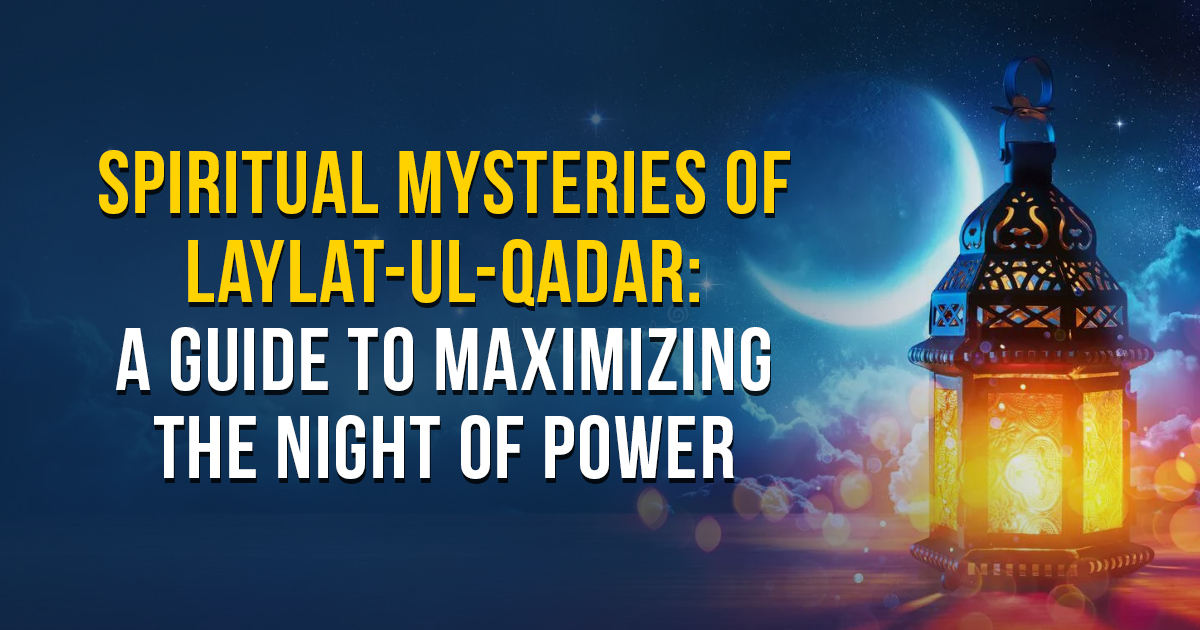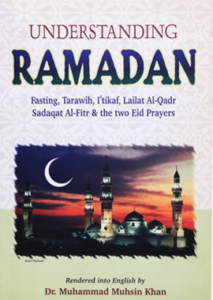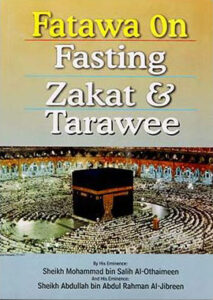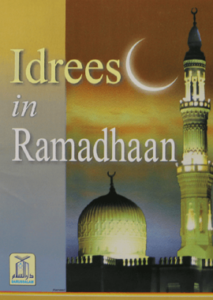Laylat-ul-Qadar, often translated as the Night of Decree or the Night of Power, holds a place of profound mysticism and spirituality within Islam. It is the night during which the first verses of the Quran were revealed to Prophet Muhammad (PBUH), thereby marking the commencement of the divine message to mankind.
Described in the Quran as “better than a thousand months” (Quran, 97:3), Laylat-ul-Qadar offers an unparalleled opportunity for Muslims to seek forgiveness, mercy, and blessings. This Darussalam blog explores the spiritual essence of Laylat-ul-Qadar and offers insights on how to maximize this blessed night.
Unveiling the Spiritual Significance
Laylat-ul-Qadar is a night that encapsulates immense grace, making it a pivotal time for Muslims to engage in profound worship and introspection.
Divine Attributes of the Night
Decree of Destiny: It is believed that Allah (SWT) decrees the destiny of all creation for the coming year.
A Night of Peace: The night is described as one of peace, extending until the break of dawn, filled with the presence of angels, including Jibreel (Gabriel).
Read More: Essential Do’s and Don’ts Guide During Ramadan 2024
The Quranic Perspective on Laylat-ul-Qadar
The Quran speaks highly about Laylat-ul-Qadar, emphasizing its importance through multiple revelations.
Surah Al-Qadar and Its Insights
The chapter (Surah) Al-Qadar (97) explicitly mentions the merits of Laylat-ul-Qadar, associating it with blessings, peace, and divine revelation.
Preparing for the Night of Power
Preparation is key to fully experiencing the spiritual bounty of Laylat-ul-Qadar. Here’s how to prepare your heart and soul for this sacred night.
Spiritual Cleansing
Seek Forgiveness: Begin by sincerely repenting for past sins, purifying your heart to receive divine blessings.
Set Intentions: Approach the night with clear intentions to worship, seek forgiveness, and pray for yourself, your family, and the Ummah.
Creating a Worship Plan
Schedule Prayers: Plan to perform extra prayers (Nafl) and recite the Quran, especially during the last ten nights of Ramadan.
Allocate Time for Duas: Designate specific times to make heartfelt supplications, focusing on personal reflections and requests.
Learn More: Ramadan Zakat: Fulfilling Your Pillar of Islam During the Holy Month
Engaging in Worship
Laylat-ul-Qadar presents a unique moment to engage in acts of worship with intensified devotion and hope.
Performing Tarawih and Tahajjud
Engage in nightly Tarawih prayers offered in the congregation and endeavor to perform additional Tahajjud prayers.
Quranic Recitation and Reflection
Endeavor to recite as much of the Quran as possible, reflecting on its meanings and implications in your life.
Making Focused Duas
Utilize this night to ask Allah for forgiveness, guidance, health, prosperity, and for the fulfillment of legitimate worldly and spiritual desires.
Recognizing Laylat-ul-Qadar
While the exact date of Laylat-ul-Qadar is known only to Allah, certain signs have been narrated that may indicate its occurrence.
Observable Signs
A Night of Tranquil Weather: Neither too hot nor too cold, indicating an environment conducive to worship.
A Peaceful Aura: A distinct feeling of peace and serenity, both internally and in the atmosphere.
The Sun Rises Without Rays: The following morning, the sun rises brightly without its rays being harsh.
Maximizing the Night of Power
To truly benefit from Laylat-ul-Qadar, worshippers should adopt a strategy of dedication, sincerity, and persistence in their acts of worship.
Diversify Acts of Worship
Combine prayers, recitation, supplications, and remembrance (Dhikr) to maximize your spiritual activities.
Community and Family Involvement
Encourage family members and the community to engage in worship and virtuous deeds together, fostering a collective spirit of devotion.
Conclusion: A Journey of Divine Proximity
Laylat-ul-Qadar offers a doorway to divine proximity, forgiveness, and spiritual elevation. By preparing earnestly, engaging in sincere worship, and embodying the virtues this night emphasizes, Muslims can hope to unlock the profound spiritual mysteries and blessings it holds.
By approaching Laylat-ul-Qadar with preparation, reverence, and a heart yearning for Allah’s mercy, believers can immerse themselves in a night that epitomizes the essence of divine compassion and majestic decree. This sacred time serves not only as a pinnacle of Ramadan but as a beacon of spiritual illumination guiding the faithful towards righteousness and closeness to their Creator.
FAQs About Maximizing Laylat-ul-Qadar
1. How can I be sure to catch Laylat-ul-Qadar?
Engage in diligent worship throughout the last ten nights of Ramadan to increase your chances of experiencing Laylat-ul-Qadar.
2. Is it better to pray alone or in congregation on Laylat-ul-Qadar?
Both have merit. Congregational prayers like Tarawih are recommended, but personal, private worship also holds immense value, especially for heartfelt Duas.
3. Can women fully participate in Laylat-ul-Qadar activities?
Absolutely. Women can engage in all acts of worship, including prayer, Quranic recitation, and making Duas, gaining equal spiritual benefits.
4. What should I prioritize if I have limited time on Laylat-ul-Qadar?
Focus on performing Salah, reciting the Quran, and making Dua, especially the Dua taught by the Prophet Muhammad (PBUH): “Allahumma innaka ‘afuwwun tuhibbul ‘afwa fa‘fu ‘anni.”
5. Can non-Muslims or new Muslims benefit from the Night of Power?
Laylat-ul-Qadar is an opportunity for anyone seeking Allah’s mercy and guidance. New Muslims and those interested in Islam can immensely benefit from engaging in worship and reflection during this night.











